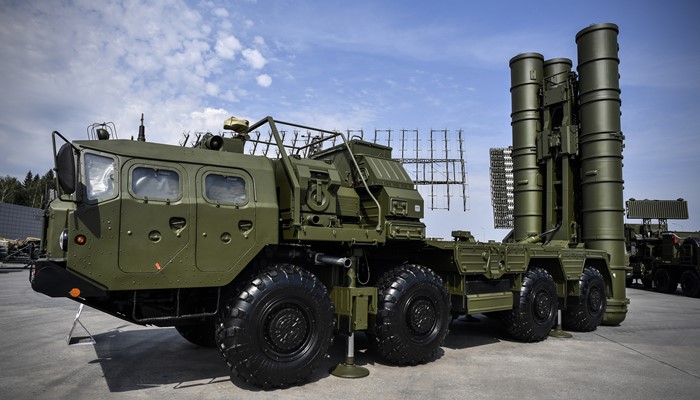Turkey and Russia have signed a $2.5 billion agreement for Moscow to supply Ankara with an S-400 missile defense system, Reuters reported on Friday based on Turkish media, finalizing a deal the two countries have been working on for more than a year.
No details of the agreement were available, but Sergei Chemezov, head of the Russian state conglomerate Rostec, told the Kommersant daily on Wednesday Russia would supply Turkey with four batteries of S-400s under the deal.
He said Moscow was expected to begin the first deliveries in March 2020 and that Turkey was the first NATO member state to acquire the advanced S-400 missile system, Reuters reported.
Earlier on Friday, Turkish newspapers cited President Recep Tayyip Erdoğan as saying Turkey would borrow in the Russian currency in a loan deal under the accord.
“We will not borrow in dollars in this loan, we will borrow in rubles,” the Hurriyet daily quoted Erdoğan as telling reporters on his plane, returning to Turkey from a trip to Africa.
According to Chemezov, Turkey would pay 45 percent of the cost of the agreement up front, with Russia providing loans to cover the remaining 55 percent.
The Russian Finance Ministry will finance a deal from the state treasury, while Russian banks will take part solely in the transfer of funds in the deal, a Russian banking source said.
The S-400 deal has caused concern in the West because Turkey is a member of NATO and the system cannot be integrated into NATO’s military architecture.
Erdoğan announced in September that Ankara had signed a deal with Russia to buy an S-400 missile defense system despite opposition from NATO allies.
Pentagon spokesman Johnny Michael said the US had relayed its concerns to Turkish officials over the purchase. Michael said that a NATO inter-operable missile defense system was the best option for defending Turkey from the full range of threats in the region.
NATO also stated in September that Turkey had not informed the alliance of the details of its agreement to purchase an S-400 air defense system from Russia.
On Aug. 1, Pentagon spokesman Capt. Jeff Davis said that Ankara procuring an S-400 anti-missile system from Russia concerns the Pentagon.
“Our only concern about it is one of interoperability. Turkey is a NATO ally. Generally speaking, it’s a good idea for allies to buy interoperable equipment,” said Davis, expressing Pentagon concerns about the damage Russian-made systems could cause to US joint operations with NATO ally Turkey.
Pentagon officials said their concern is about the potential of confusion on the battlefield between Ankara and alliance members due to the use of Russian systems by a NATO ally.
Reacting to critics from the West, Erdoğan in July said “Greece, a member of NATO, has been using the S-300 for years.”
“You [NATO] neither share technology and respond to demands for joint production, nor present an offer that is financially effective. Hence, you are not in a position to say ‘Don’t buy a non-NATO system’,” Turkish Defense Minister Fikri Işık said in a statement in April.

